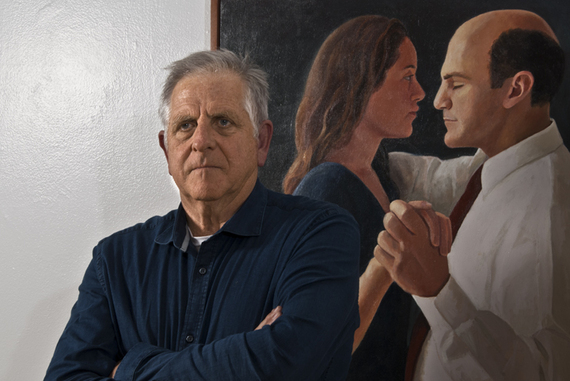Lamenting the ‘lost sonorities’ of the modern piano
Piano design has become so “radically standardized” since the middle of the 20th century that players and audiences are robbed of any choice today, claims a new book the piano’s past, present and future. This book fearlessly confronts the big questions: Should we even call today’s top-selling acoustic models the “modern piano”, considering that they are all based on a 140- year-old design? Will the 21st century mark a turning point in piano building?
The authors ask these controversial questions in Keys to the Piano (Editions Aedam Musicae), conceived and edited by Lebanese-born Parisian Ziad Kreidy, a pianist and ranking academic. It is a fascinating collection of 21 essays and papers from a disparate collection of piano builders, composers and a few visionaries from ten countries. Twelve contributions are in English and nine are in French. Kreidy has appended chapter summaries at the end, all in English. Kreidy personally co-authored seven of them. Timelines run from the father of the piano, Bartolomeo Christofori to radical builder Wayne Stuart of Australia.
Most of the contributors make no secret of their frustration and irritation over the piano makers’ copycat tendencies. The only evolution they can see is the move toward more and more power. In the process, they say, subtleties have been subsumed.
“Many facets of the masterpieces of the past, dependent on timbre and duration of sound -- in other words the osmosis of piano resonances -- have disappeared. This is the great historic epic of lost sonorities,” Kreidy argues in his introduction. Hammering Chopin on a big Steinway grand means missing what has often been described as the master’s “fine, delicate, barely audible playing”.
Kreidy includes essays by four innovative piano makers who believe the piano has not completed its evolution – David Klavins of Germany, Wayne Stuart of Australia, David Rubenstein of the United States and Stephen Paulello of France.
Wayne Stuart, a dynamic and innovative maker of handcrafted pianos in Australia, has experimented with expanded keyboards, first with 102 keys, and more recently with 108 keys. He recalls “shouts of outrage” when he presented the 102-key version to his board. But his proposal was a “triumph of common sense over conservatism”, he insists. As he continued to expand this keyboard, he achieved nine octaves, “the subconscious dream of piano markets for 300 years”. (Facts and Arts plans a full profile of Stuart in March).
German piano maker David Klavins has been in the forefront of piano innovation for some time, always seeking new sounds and new solutions. In this video, David Klavins and Nils Frahm discuss the creation of their Una Corda piano:
Another interesting contribution comes from Geoffrey Smith, a British composer and pianist who has developed the fluid piano, an instrument that draws on his experience with the fluid dulcimer. Smith’s piano can alter the pitch of each note while playing, moving up microtonal intervals to as much as one whole note. The result, he says, is “creative freedom, renewal and change”. Kreidy applauds the piano’s capabilities. “This has never been done before,” he says.
Here Utsav Lal plays Smith’s fluid piano:
Kreidy’s book is the result of three years of sifting, editing and rewriting many of the contributions that flooded in from his call for papers. He cast his net wide, inviting contributions from academics, piano makers, restorers, organologists, curators, philosophers, performers, and composers. And his book reflects the guidelines he set -- piano analysis from the standpoint of aesthetics, history, symbolism, social function, metamorphoses, place in contemporary music, current orientation and acoustics.
One of the appealing features is the variety of opinions collected. “This field of research … is far from being consensual, he acknowledges.
French piano maker Stephen Paulello contributes a wide-ranging paper on his own innovations and on the world marketplace, including a discussion of his Opus 102, a keyboard with 102 keys. But Kreidy asks him whether the piano is headed for the museum anyway, along with the cornet and the hurdy-gurdy. His answer is yes and no -- the European middle market piano is disappearing but the Chinese are producing some 500,000 middle-range pianos a year, about 80 percent of the global market, Paulello notes.
In this video, the Paulello Opus 102 produces the clear and resonant sounds of La Toccata by Charly Mandon, played by Philippe Hattat:
Optimism is not a common feeling through these essays. Former Baldwin director of research Delwin Fandrich laments the fact that making music “is no longer a fundamental part of growing up” and he cites “design lethargy” as one of the self-inflicted wounds of the piano world. He calls for a strong innovative base of pianos that appeal to the middle class piano shopper. Specifically, he notes that among the competitors are the growing producers of electronic keyboard.
And Fanwich ends with a ringing appeal to the industry. “We can strive to become part of the future and not stay mired in the past. We can return music to the halls of learning and ensure that the instrument we love will survive to bring future generations the same musical pleasure we have enjoyed.”
END
This article is brought to you by the author who owns the copyright to the text.
Should you want to support the author’s creative work you can use the PayPal “Donate” button below.
Your donation is a transaction between you and the author. The proceeds go directly to the author’s PayPal account in full less PayPal’s commission.
Facts & Arts neither receives information about you, nor of your donation, nor does Facts & Arts receive a commission.
Facts & Arts does not pay the author, nor takes paid by the author, for the posting of the author's material on Facts & Arts. Facts & Arts finances its operations by selling advertising space.


